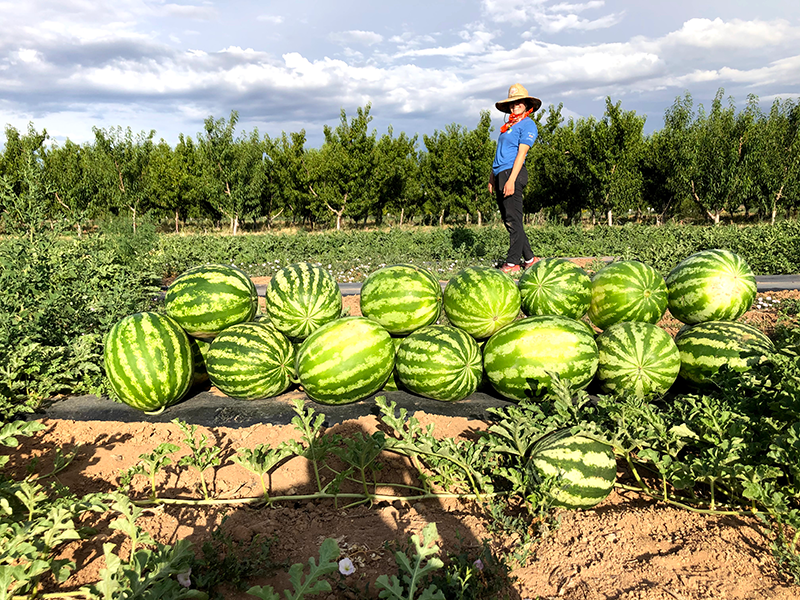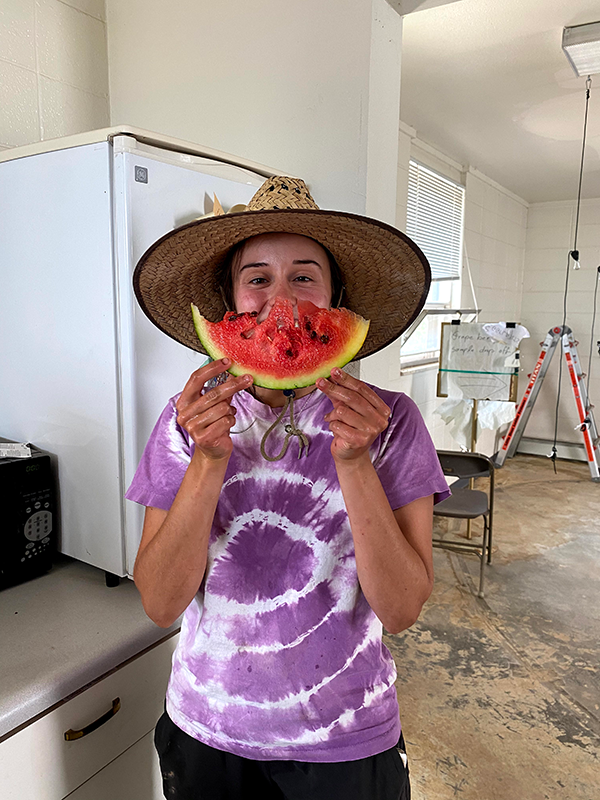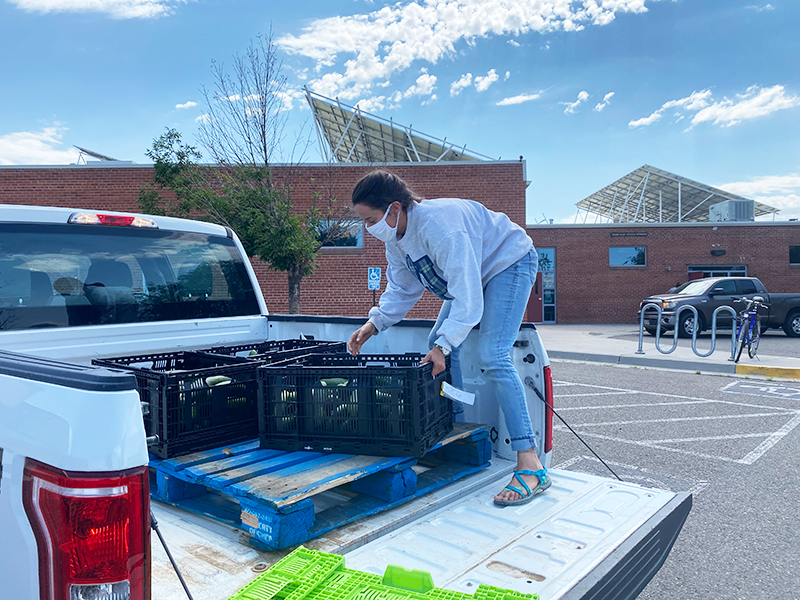How a Global Mindset Helps a Miami Alum Cultivate Social Justice
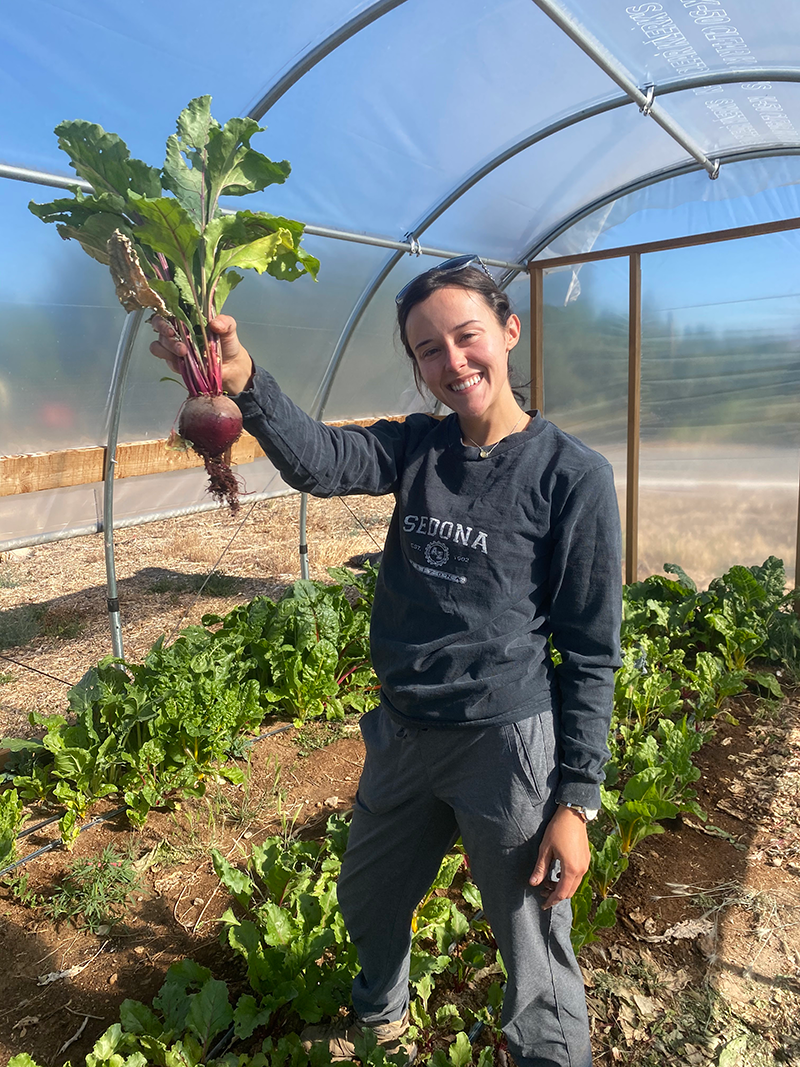
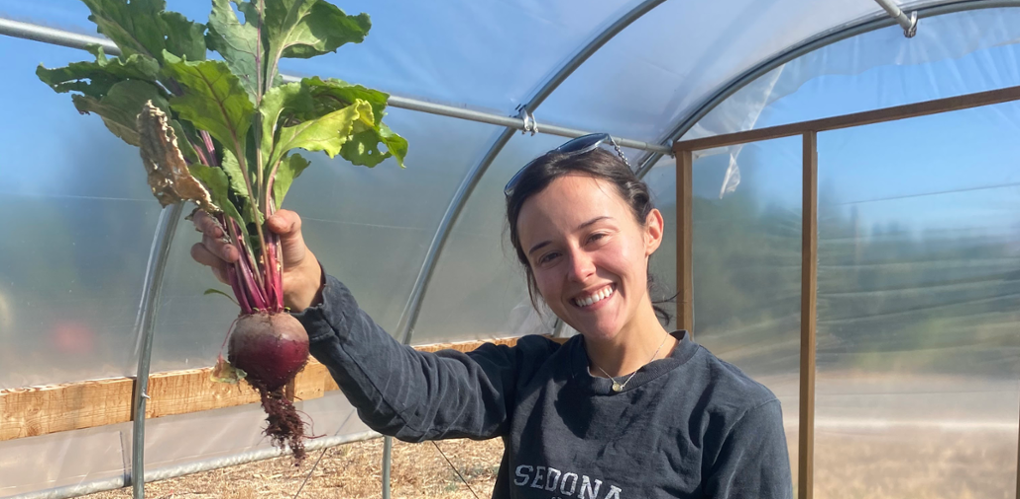
Grace Sonderman graduated from Miami in May, 2020 with double majors in Nutrition and Public Health and a minor in Global Health. Among her many achievements at Miami, Sonderman was the first student to earn the Global Readiness Certificate, offered through the Center for American and World Cultures.
Currently serving as an AmeriCorps Service Member in western Colorado, she works at a farm that grows fresh produce for organizations that work to alleviate food insecurity.
We reached out to Sonderman to reflect on how her international experiences at Miami made a difference in her career, and to hear about her work with AmeriCorps.
Tell us about your Education Abroad experiences at Miami.
I participated in three Education Abroad experiences during my time at Miami. I attended "Health in The Gambia" with Dr. Helaine Alessio for two weeks, the MUDEC Luxembourg program for a spring semester, and "Health and Innovation in India" in Bangalore for two weeks.
When reflecting on my study abroad experiences, I realize that my peers and I were naturally participating in intergroup dialogue (IGD) to process our experiences. We would informally share our impression of this shared experience, and discussed the things we were seeing and the concepts we were being exposed to.
I found that IGD was particularly important during my time in Bangalore. This study abroad program was held at Christ University in Bangalore, India. Teams of students from both Miami and Christ worked together for two weeks to seek understanding and ultimately develop a solution to a health issue that India residents face.
Not only did I seek a better understanding of India's health issues, but I connected with the Christ University students. Dialogue allowed us to respectfully share our respective experiences in India and the U.S. I felt connected to the young women that I met as we continued to share details of our lives throughout the two weeks. Dialogue allowed my experience in Bangalore to be much richer by providing a sense of true understanding.
About the Global Readiness Certificate
The Global Readiness Certificate (GRC) is a new certificate for undergraduate students at Miami, launched in fall 2019. Designed for students of all majors, the certificate combines Miami coursework, co-curricular activities, and community involvement focused on global readiness. The courses and experiences in this certificate program provide students with the knowledge, awareness, and skills necessary for global and intercultural communication and teamwork.
The Global Readiness Certificate is being rolled out across campus by college/school. Current cohorts include:
- Education, Health & Society - launched fall 2019
- Farmer School of Business - launched spring 2020
- College of Arts & Science - applications open fall 2020
For more information, or to apply, visit MiamiOH.edu/GRC.
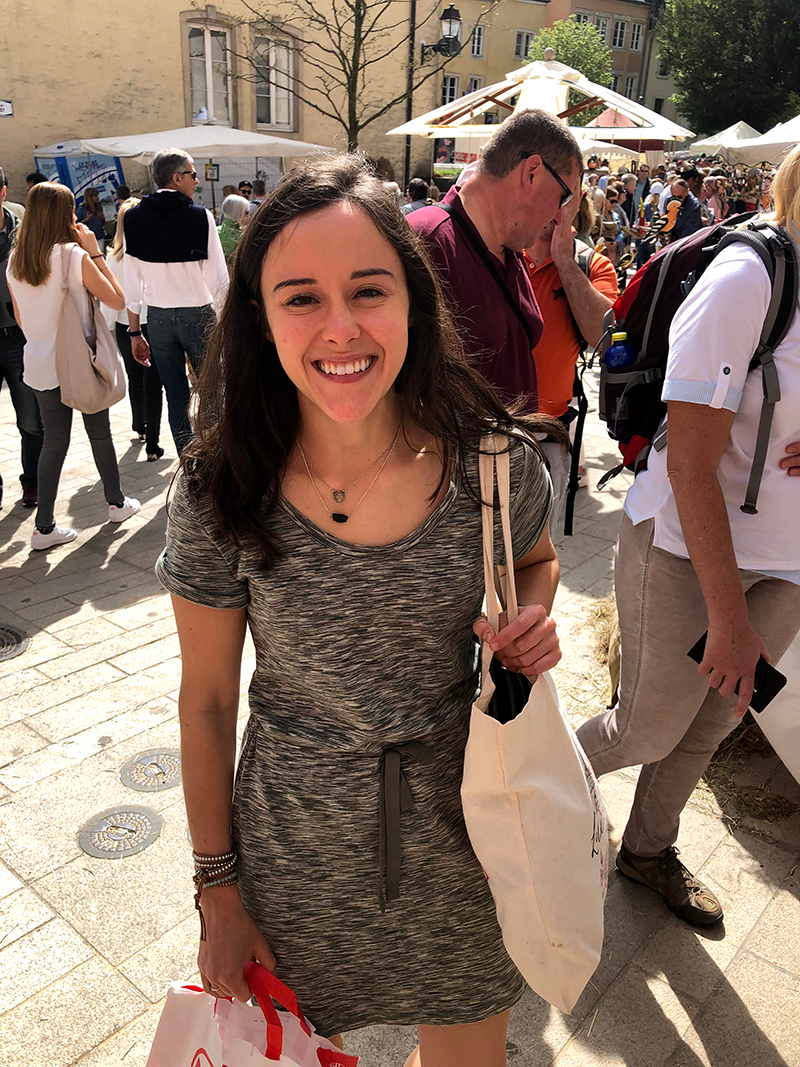
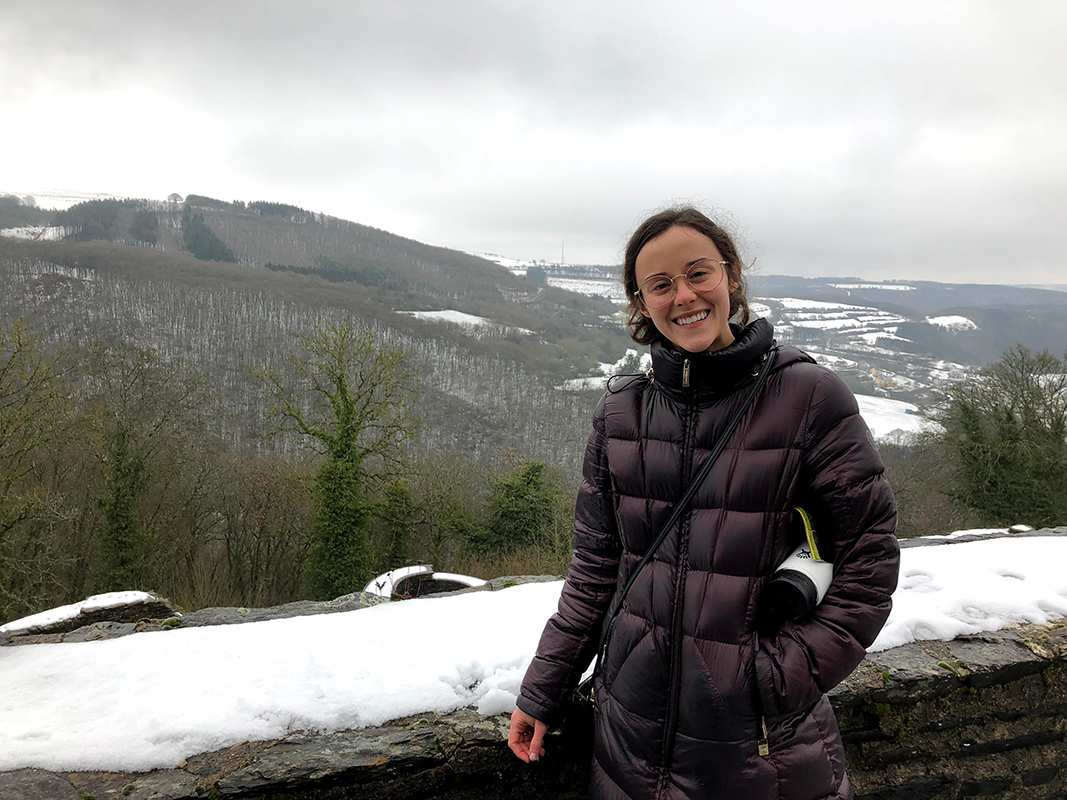
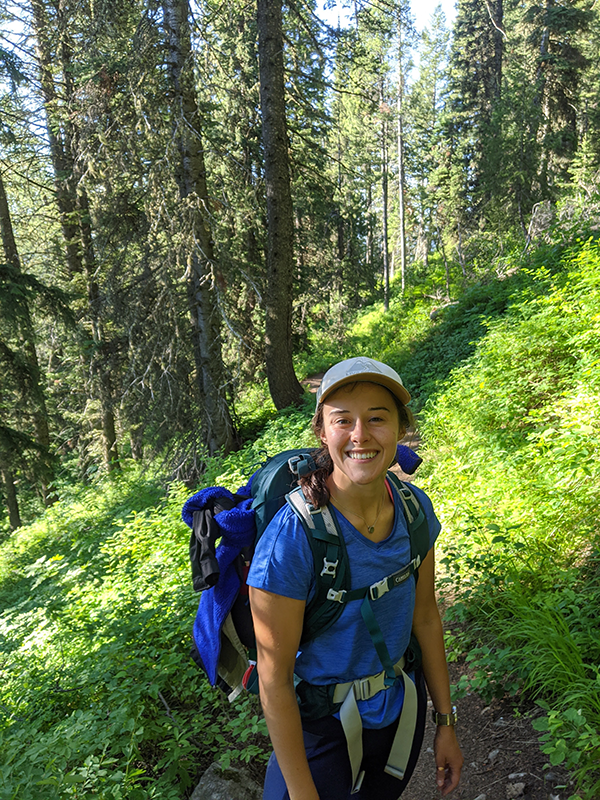
Why did you decide to pursue the Global Readiness Certificate (GRC)?
I wanted to pursue the GRC because I understand the importance of a global mindset. I aimed to widen my perspective whenever possible in college through my Global Health minor, study abroad experiences, writing the Global Health case competition, and participation in the Indian Student Association's Diwali performances. I fulfilled many of the requirements for the GRC before it was developed, so it was an easy decision to pursue it. I enjoyed additional enriching facets of the certificate like the IGD course and the GRC orientation. I am happy to now have a tangible line on my resume to show employers that I pursue a global and tolerant mindset.
Why should students pursue the GRC?
The experiences that count towards the certificate are also the ones that revealed to me that which is most important to me. Tolerance, dignity, and curiosity drive my continued quest to understand those around me, and these values were strengthened during my time at Miami. I was exposed to new places and new perspectives, and these experiences have been incorporated into my goals for the future.
A global mindset has not only allowed me to understand what work I want to pursue, but having a tangible certificate shows others that I value a global mindset, too. Employers rightfully value respectful communication and inclusive behaviors, and the GRC will demonstrate that I share these values. Your participation in the GRC may allow you to find a deeper understanding of yourself and others while connecting to the larger world in a meaningful way.
During our orientation, I felt a genuine connection to my cohort and enjoyed getting to know them on a deeper level. During our end of the year celebration (over Zoom, of course), I could feel my peers' happiness for my graduation from the certificate program. I wish that I had more opportunities to interact with my cohort, but I hope that future students are able to find a community in their GRC cohort. The fact that I started and completed the certificate in my Senior year really impacted my ability to form meaningful friendships, but I think this could be a great way for likeminded students to come together for support.
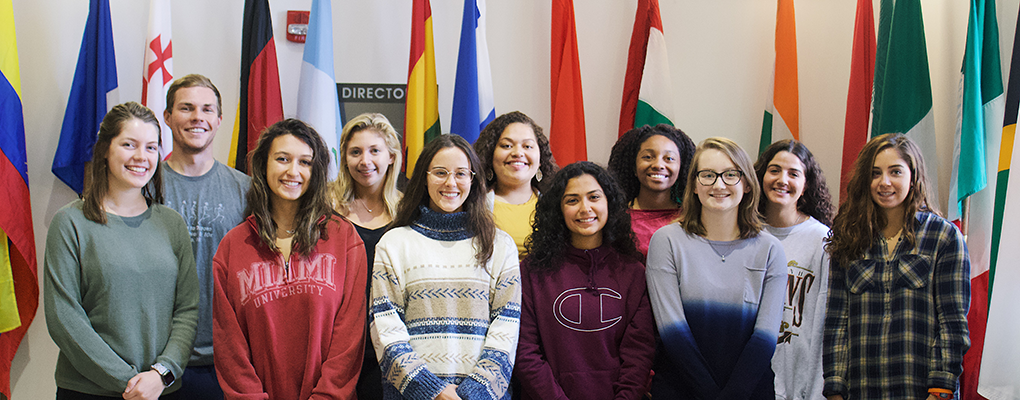
Grace Sonderman (front row, 3rd from the left) with her Education, Health & Society cohort at orientation, fall 2019.
Tell us about your work with AmeriCorps
I am serving as an AmeriCorps Service Member in western Colorado. I work at a farm that grows fresh produce for organizations that work to alleviate food insecurity. I spend my days managing vegetable and fruit plots to provide fresh food for those that are most in need. My work is really important to me, and I know that my studies and the GRC at Miami have influenced why I find this work so valuable.
I truly believe that it is a human right to have access to a lifestyle that supports well-being. Much of my work in college, including study abroad trips, surrounded the "social determinants of health", which are conditions that someone is born into that impacts their state of health. Systemic oppression results in drastically lower lifespans and decreased health outcomes for entire communities, and people are dying simply because of where they are born and what opportunities are available there. Examples of these social determinants include educational attainment, race, and access to healthy foods.
I am devoting my time to this last social determinant because food is so integral to our existence. Food has the power to create connection, to spark joy, to ground us, and to literally sustain life. It may be naive to think that a donated cucumber can make a difference, but there is no denying that each person deserves a dignified way of obtaining a cucumber if they would like to support their body in that way. I hope one of my cucumbers can bring a sense of dignity, grounding, and fullness to someone in my community.
